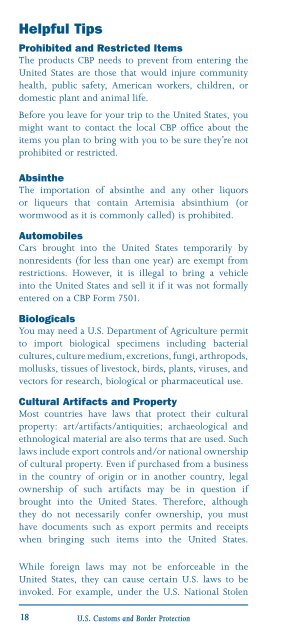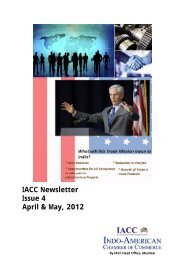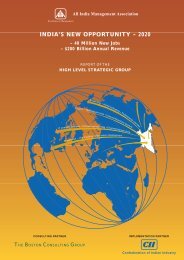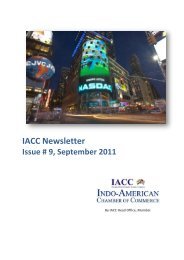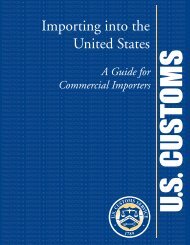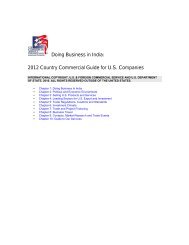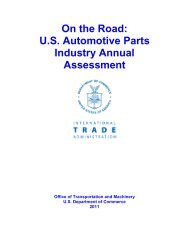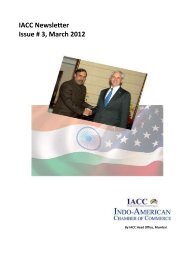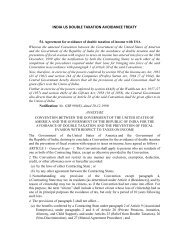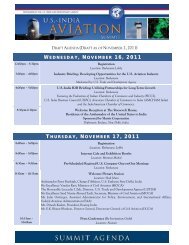Welcome to the United States
Welcome to the United States
Welcome to the United States
You also want an ePaper? Increase the reach of your titles
YUMPU automatically turns print PDFs into web optimized ePapers that Google loves.
Helpful Tips<br />
Prohibited and Restricted Items<br />
The products CBP needs <strong>to</strong> prevent from entering <strong>the</strong><br />
<strong>United</strong> <strong>States</strong> are those that would injure community<br />
health, public safety, American workers, children, or<br />
domestic plant and animal life.<br />
Before you leave for your trip <strong>to</strong> <strong>the</strong> <strong>United</strong> <strong>States</strong>, you<br />
might want <strong>to</strong> contact <strong>the</strong> local CBP office about <strong>the</strong><br />
items you plan <strong>to</strong> bring with you <strong>to</strong> be sure <strong>the</strong>y’re not<br />
prohibited or restricted.<br />
Absin<strong>the</strong><br />
The importation of absin<strong>the</strong> and any o<strong>the</strong>r liquors<br />
or liqueurs that contain Artemisia absinthium (or<br />
wormwood as it is commonly called) is prohibited.<br />
Au<strong>to</strong>mobiles<br />
Cars brought in<strong>to</strong> <strong>the</strong> <strong>United</strong> <strong>States</strong> temporarily by<br />
nonresidents (for less than one year) are exempt from<br />
restrictions. However, it is illegal <strong>to</strong> bring a vehicle<br />
in<strong>to</strong> <strong>the</strong> <strong>United</strong> <strong>States</strong> and sell it if it was not formally<br />
entered on a CBP Form 7501.<br />
Biologicals<br />
You may need a U.S. Department of Agriculture permit<br />
<strong>to</strong> import biological specimens including bacterial<br />
cultures, culture medium, excretions, fungi, arthropods,<br />
mollusks, tissues of lives<strong>to</strong>ck, birds, plants, viruses, and<br />
vec<strong>to</strong>rs for research, biological or pharmaceutical use.<br />
Cultural Artifacts and Property<br />
Most countries have laws that protect <strong>the</strong>ir cultural<br />
property: art/artifacts/antiquities; archaeological and<br />
ethnological material are also terms that are used. Such<br />
laws include export controls and/or national ownership<br />
of cultural property. Even if purchased from a business<br />
in <strong>the</strong> country of origin or in ano<strong>the</strong>r country, legal<br />
ownership of such artifacts may be in question if<br />
brought in<strong>to</strong> <strong>the</strong> <strong>United</strong> <strong>States</strong>. Therefore, although<br />
<strong>the</strong>y do not necessarily confer ownership, you must<br />
have documents such as export permits and receipts<br />
when bringing such items in<strong>to</strong> <strong>the</strong> <strong>United</strong> <strong>States</strong>. .<br />
While foreign laws may not be enforceable in <strong>the</strong><br />
<strong>United</strong> <strong>States</strong>, <strong>the</strong>y can cause certain U.S. laws <strong>to</strong> be<br />
invoked. For example, under <strong>the</strong> U.S. National S<strong>to</strong>len<br />
18<br />
U.S. Cus<strong>to</strong>ms and Border Protection


